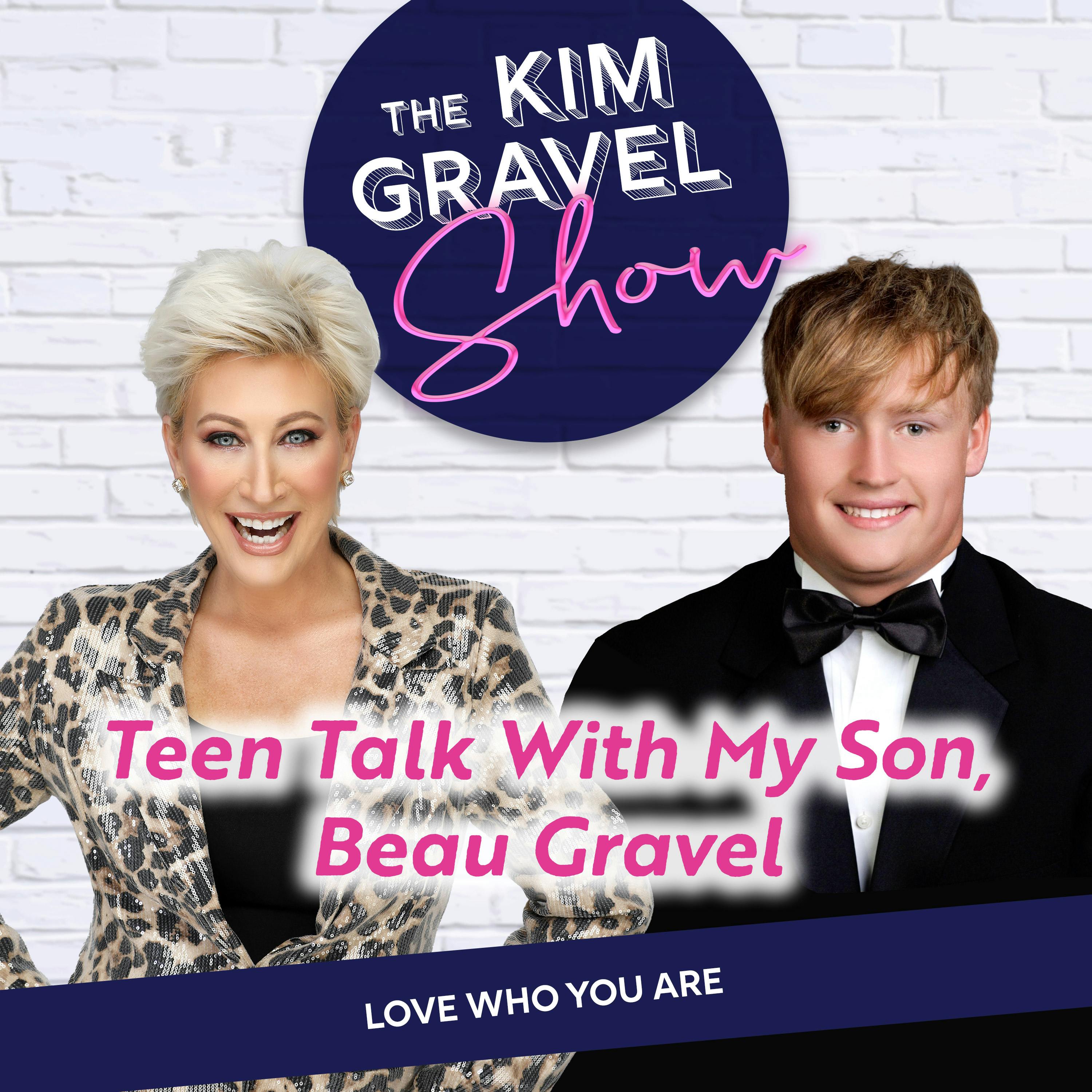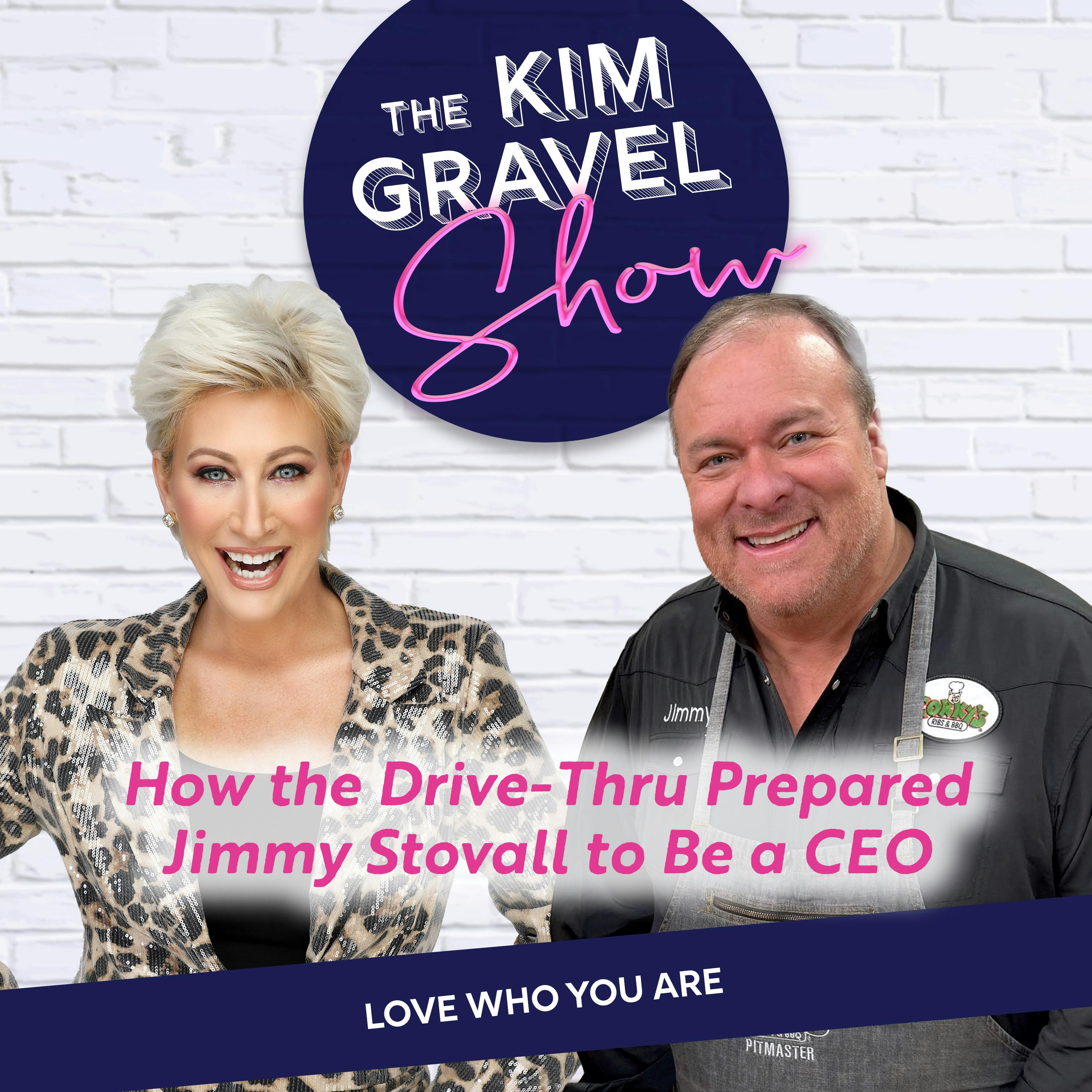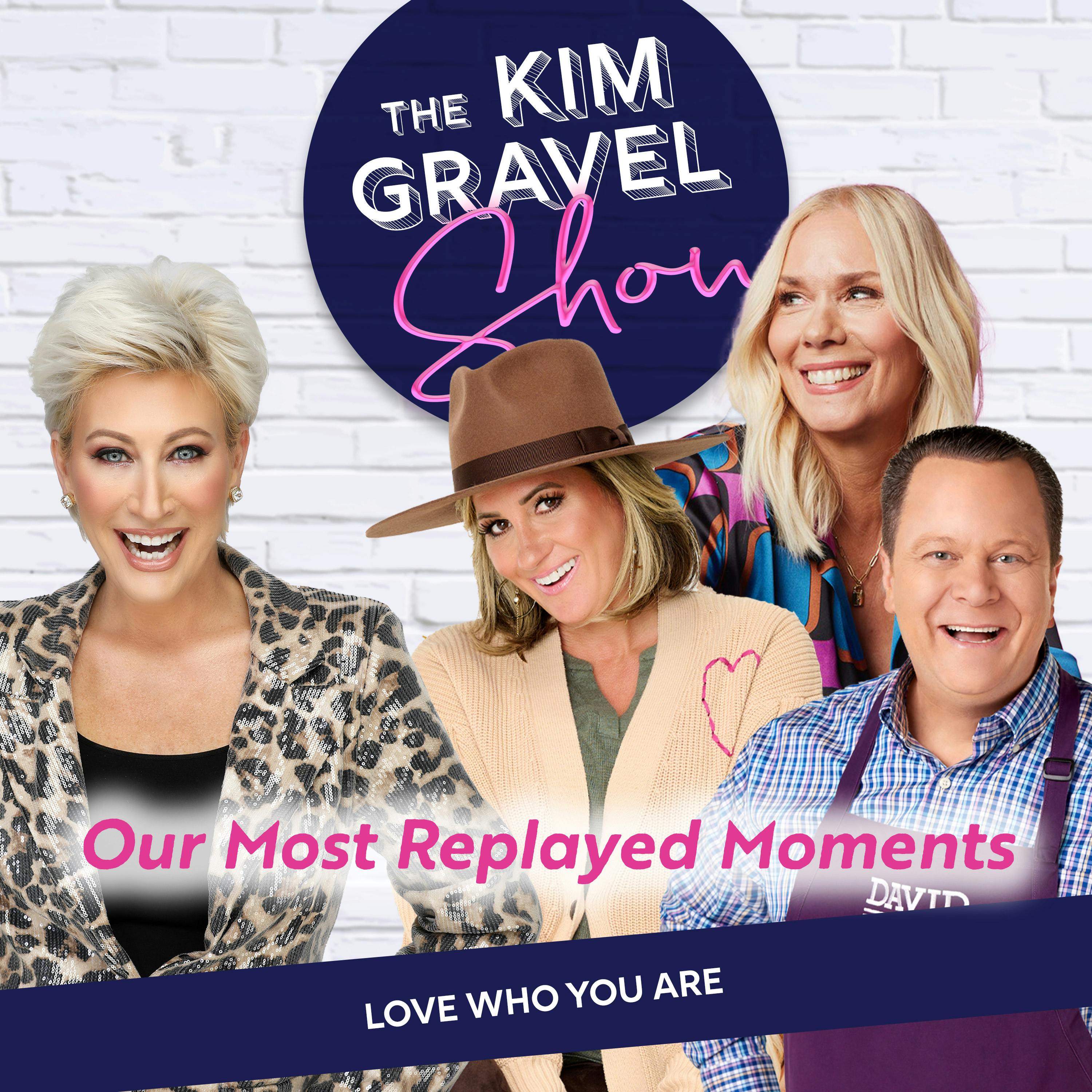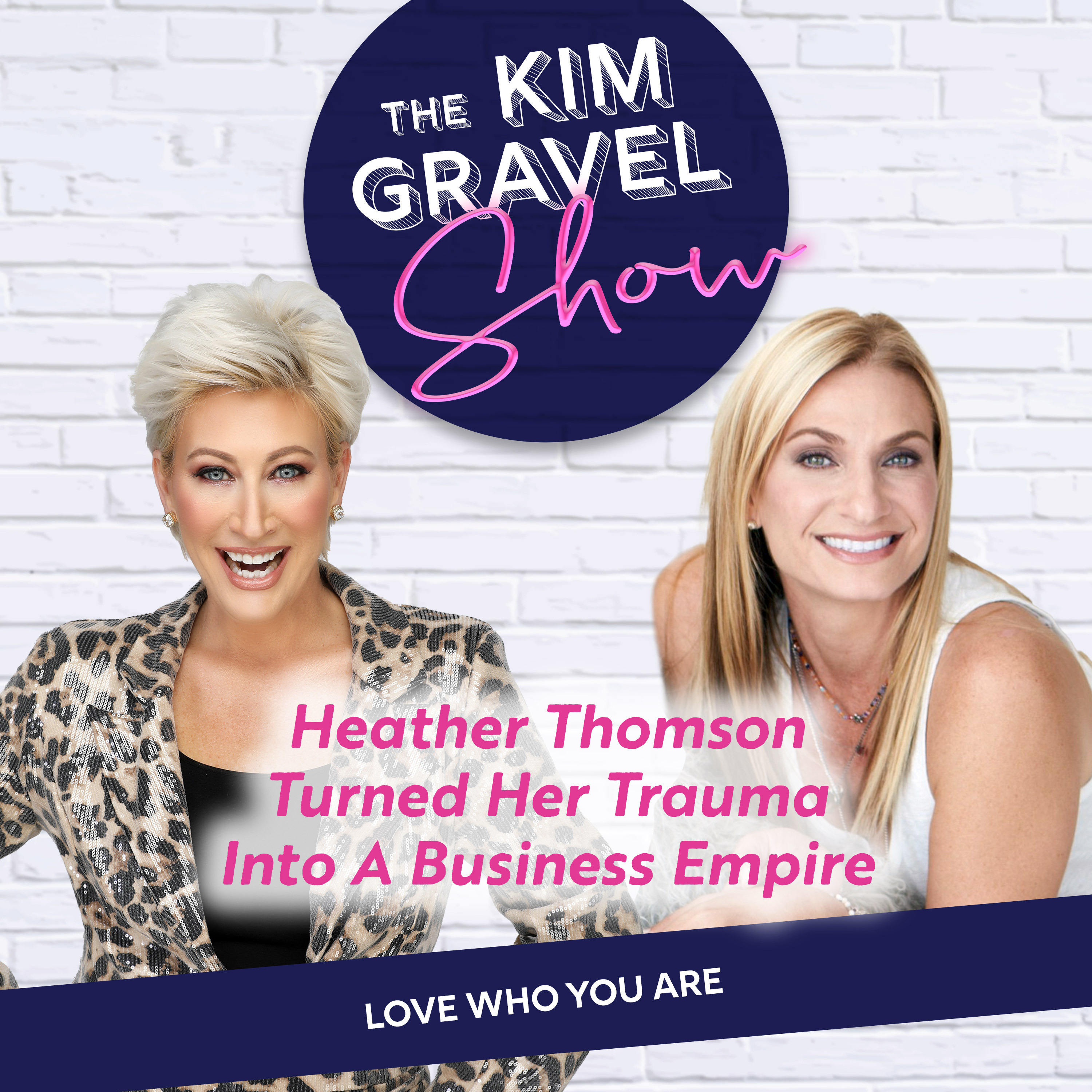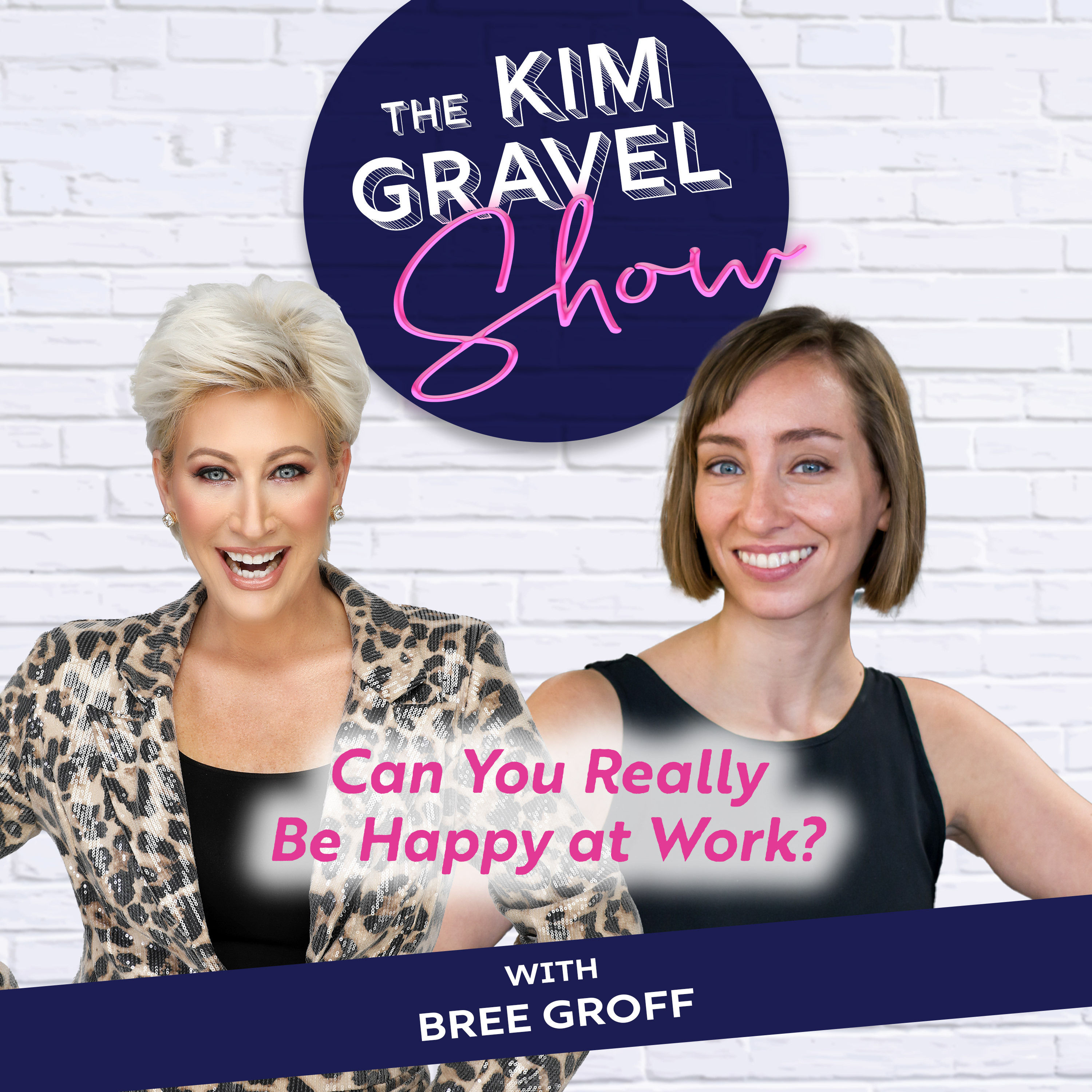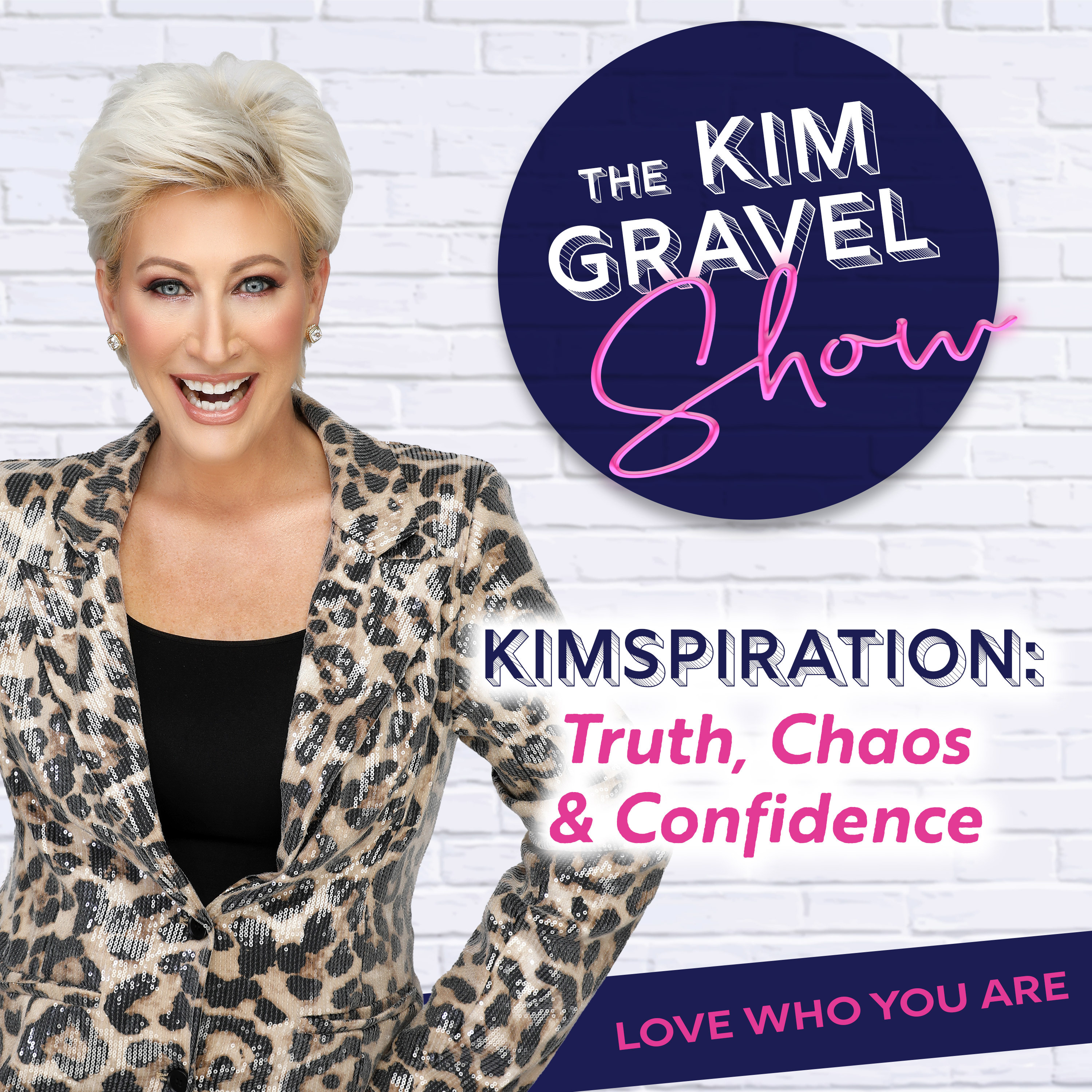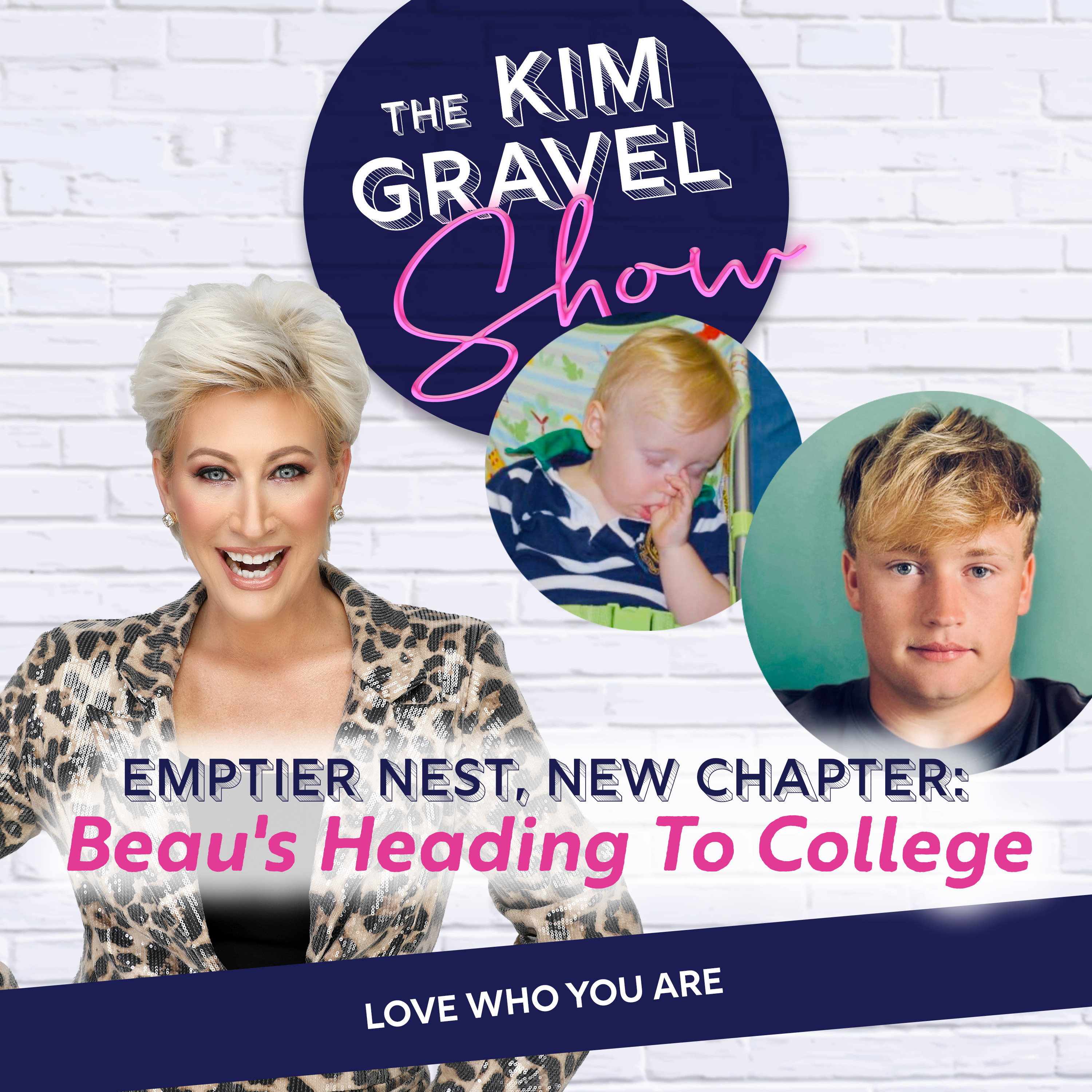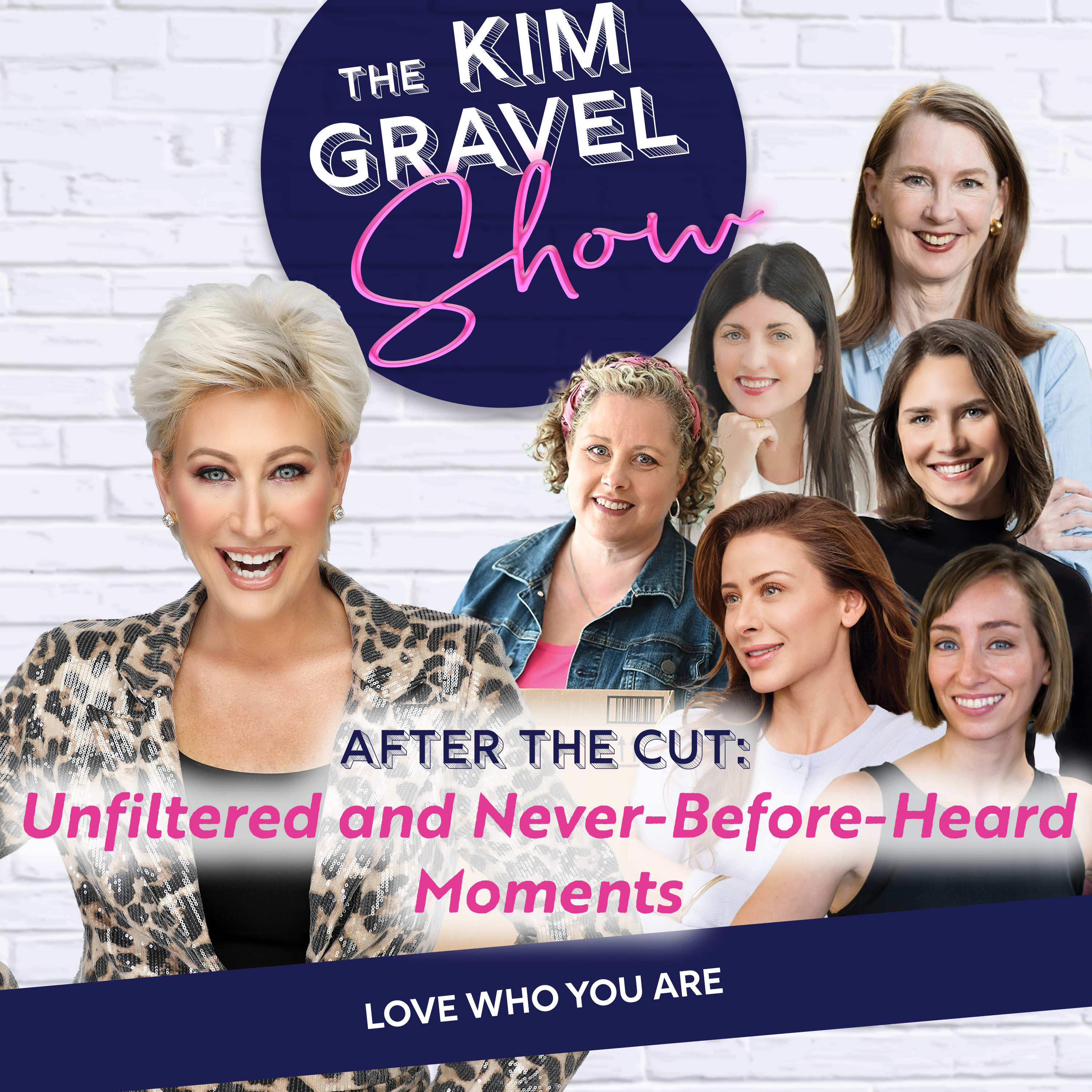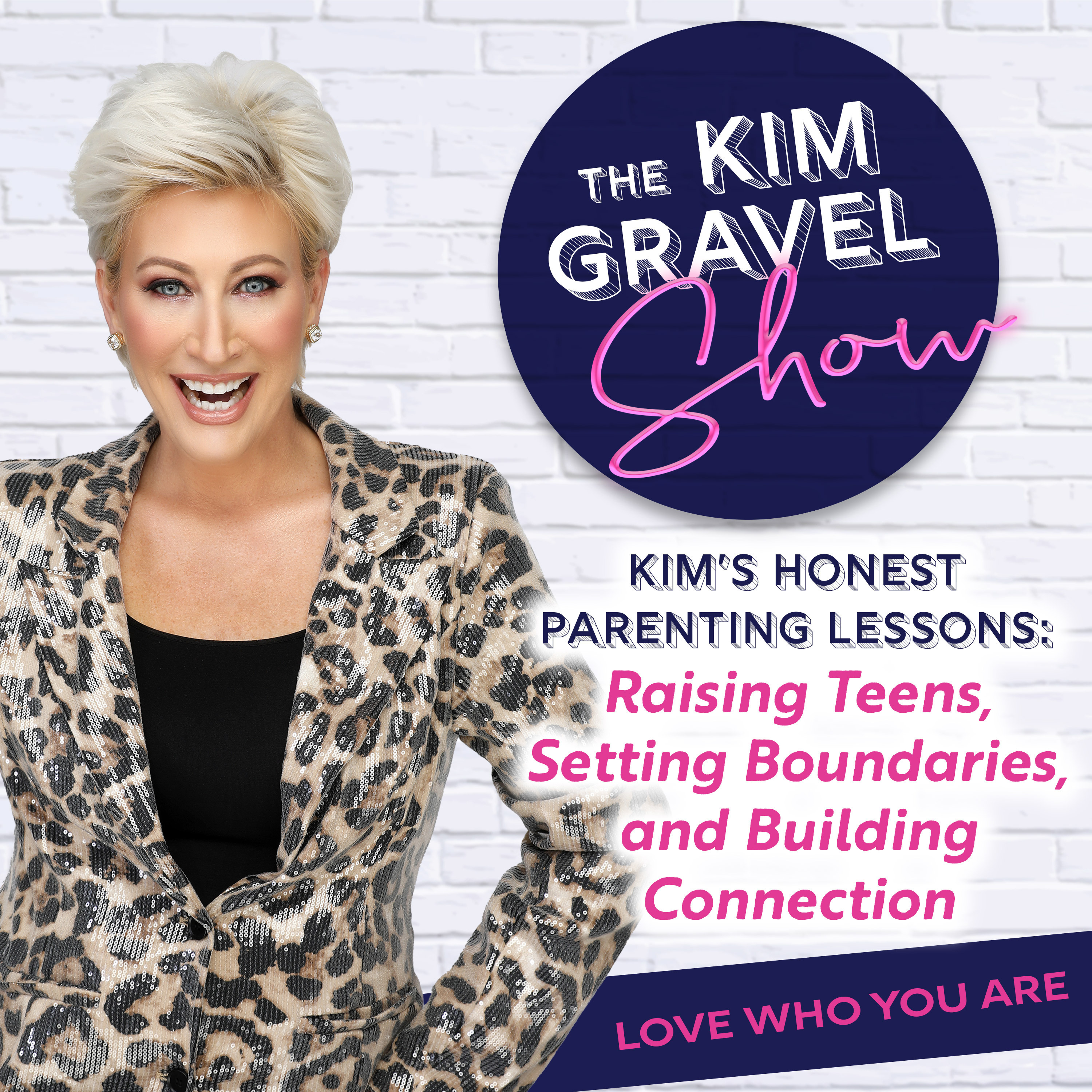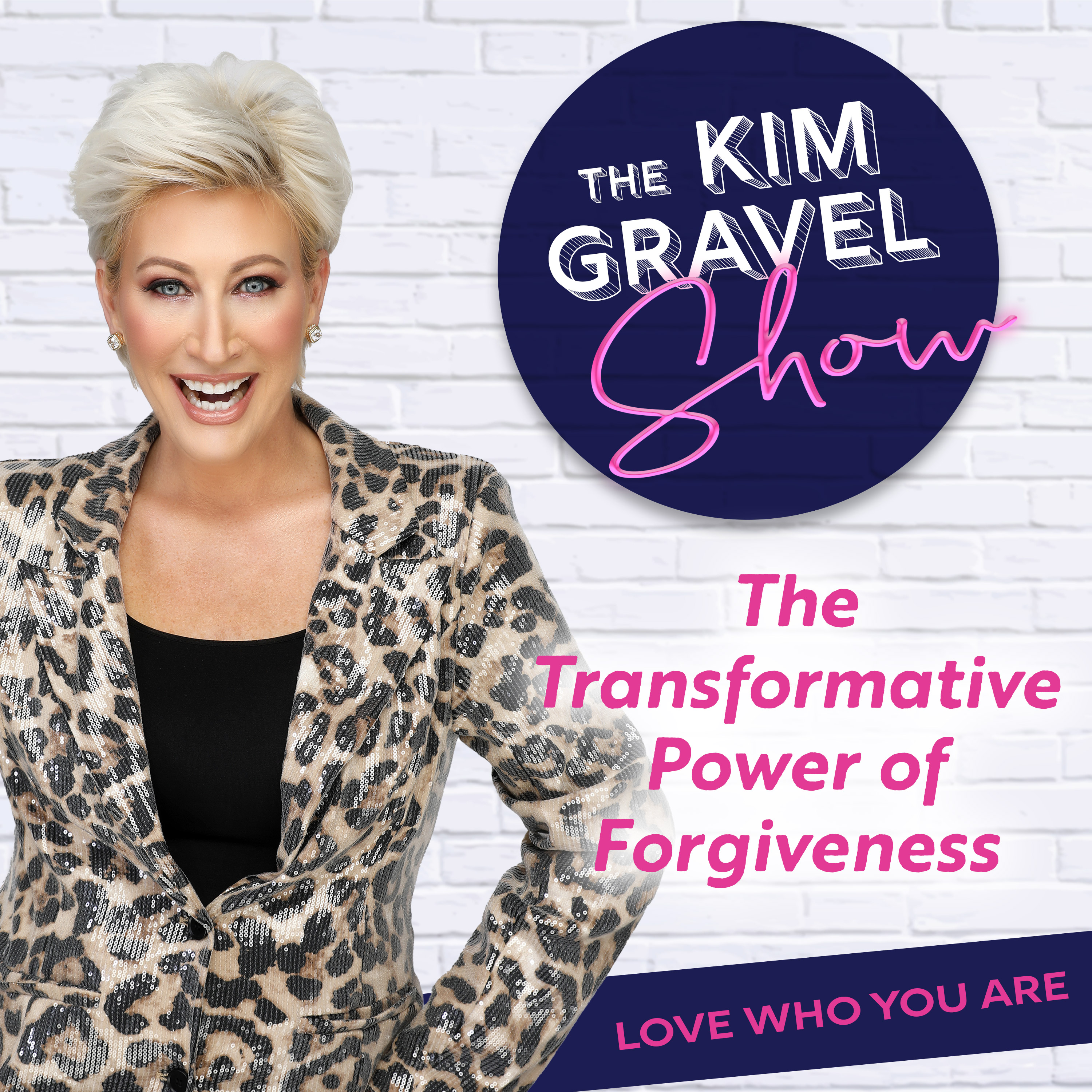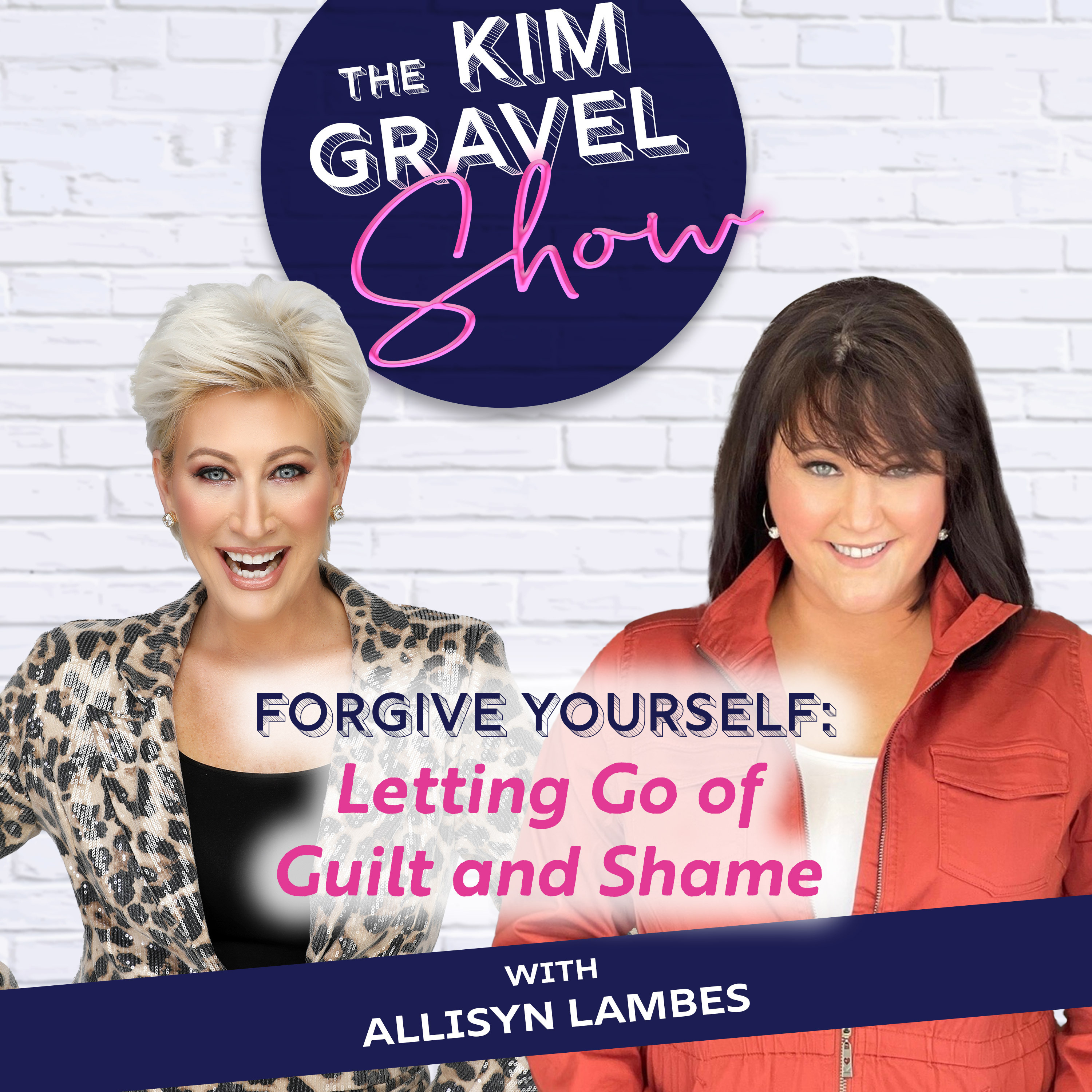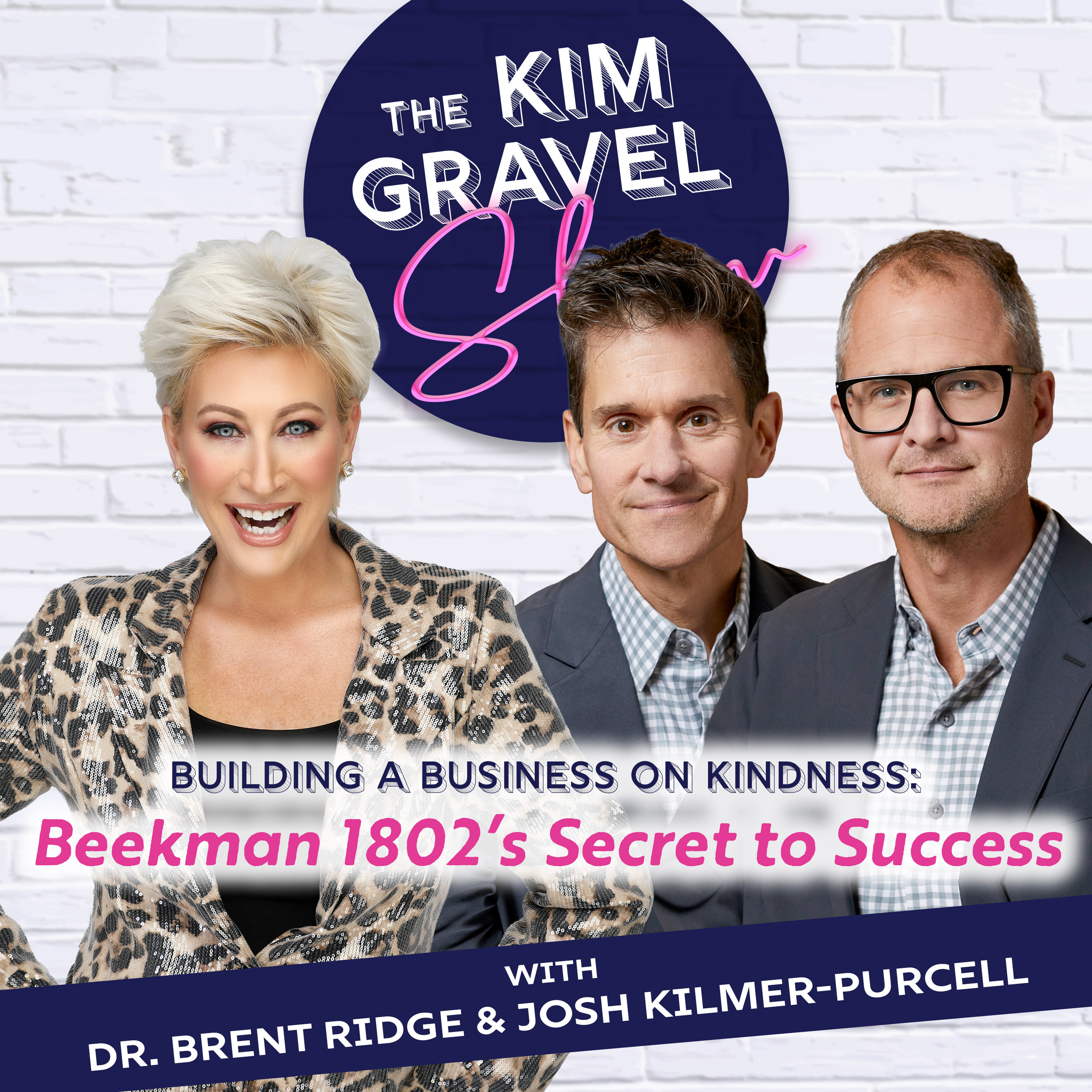My In-Depth Conversation with a CIA Spy with Jonna Mendez
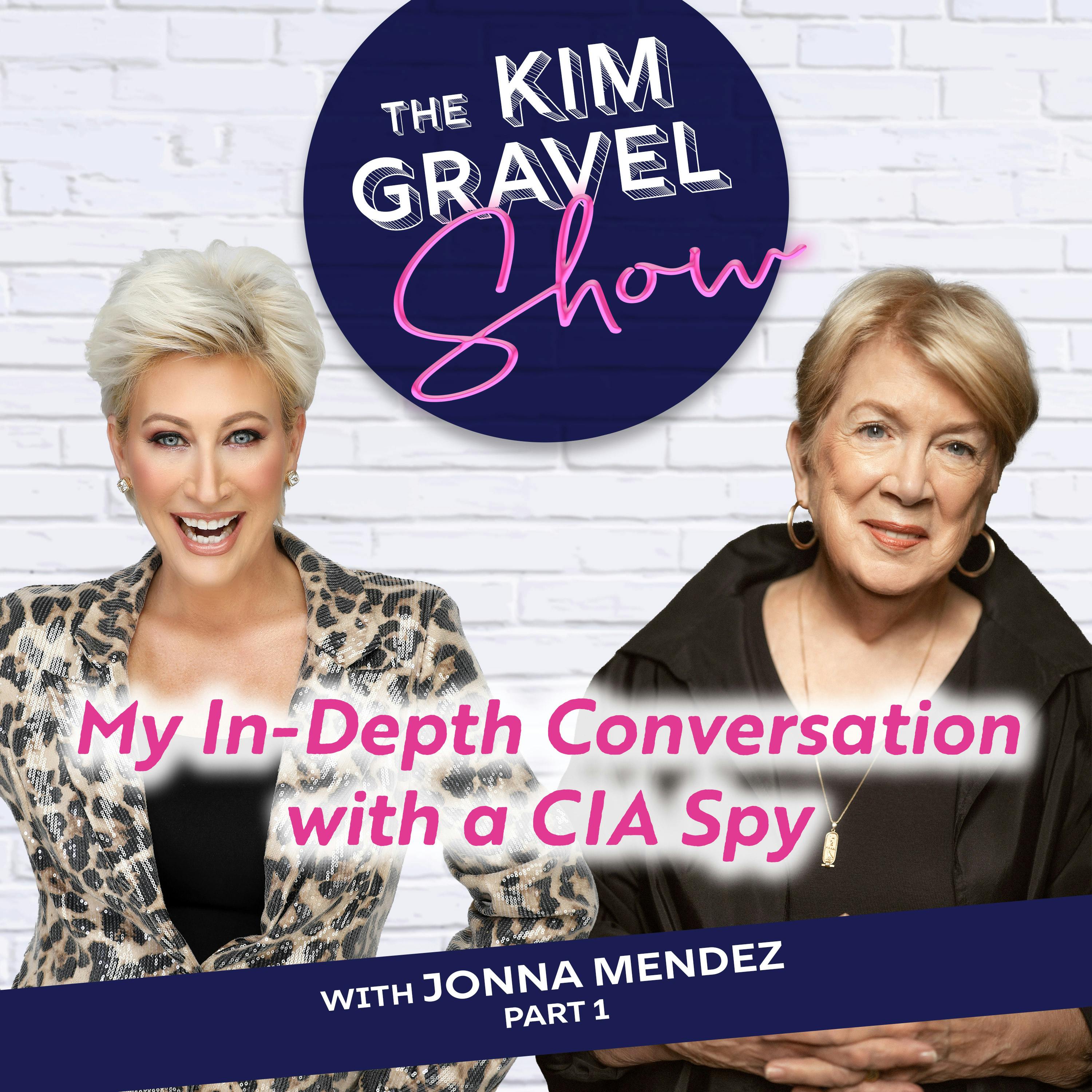
Jonna Mendez, a former CIA division chief, shares gripping stories that will inspire you to boldly pursue your own calling!
The conversation I had with Jonna Mendez, former CIA Chief of Disguise, this week on the show was simply incredible. Jonna dives into her fascinating journey—from how she became a CIA agent to navigating the challenges of being a woman in the agency. She shares jaw-dropping stories, like her first encounter with a terrorist and a grenade being thrown at her. Jonna’s story is all about empowerment and walking boldly in your gifts and talents. Tune in and get ready to be inspired to step out of your comfort zone and into the next exciting chapter of your life.
Jonna’s new book, In True Face: A Woman's Life in the CIA, Unmasked is out now!
In this episode:
- How Jonna became a certified CIA agent
- What it was like being kidnapped by the CIA
- Jonna’s first encounter with a terrorist
- The mental toughness required in the CIA
- What it was like being a woman in the CIA
Jonna Mendez, former Chief of Disguise for the CIA's Office of Technical Service, used her unique skills, including photography, to take on significant and challenging roles overseas. She is the bestselling coauthor of The Moscow Rulesand, and Argo. In her new memoir, In True Face, Jonna shares her riveting and courageous story as a female spy during the Cold War, revealing the high-stakes drama and perseverance needed to thrive in a male-dominated field.
Here is my favorite quote from this episode:
"I tell young women when I talk to them today, don't sit there and wait for them to give it to you. You take it.” - Jonna Mendez
Do you want to hear your voice on the show?
Call me and leave me a voicemail at 404-913-6460 and let me know why you love who you are!
There is BONUS CONTENT in our free newsletter so make sure to subscribe at https://www.kimgravelshow.com
Collecting Confidence, my best-selling book is now available in paperback with a brand new discussion guide!
Click this link to buy it now.
Join my Love Who You Are movement at https://lwya.com
Connect with Me:
Connect with Jonna Mendez:
Book: In True Face: A Woman's Life in the CIA
New episodes of The Kim Gravel Show drop every Wednesday at 6pm EST.
Support our show by supporting our Sponsors:
Shopify
Shopify is the global commerce platform that helps you sell at every stage of your business. Shopify makes it easy for you to show up exactly the way you want to.
Customize your online store to your style with gorgeous, flexible templates and powerful tools.
Just go to Shopify.com/kim and get a free trial for only $1 per month
Ro Body
You lose weight, it comes back. You lose it again. It comes back again. If this cycle sounds familiar to you, there’s a better, more sustainable way to lose weight. Over 200,000 people have already chosen Ro to help them lose weight.
Average weight loss is 15-20% in 1 year, with healthy lifestyle changes. BMI and other eligibility criteria apply.
Go to https://www.ro.co/kim and pay just $99 for your first month.
*This transcript was auto-generated*
Kim:
I'm so excited about this episode because this guest that we're bringing in today is not only seasoned brilliant, she was the chief of disguise for the CIA. She has so many wonderful stories. She's an author, but she is such a force for women to be empowered to walk in their talents and their giftings. Her book, in true face, is amazing. You've got to get it and read it. But not only will you be mesmerized by the stories, you will be inspired about your story. And that, to me, is what it's all about. And at the end of the day, it's about you.
Kim:
It's about me living out our purpose and our calling in the best, most optimal way. So without further ado, we have to get to this interview because I think you're gonna be riveted and you're gonna be inspired to live the very best life. So, hey, you wanna be a CIA agent, we get it. Do it. She's gonna tell you how. If you just wanna live that best life as a woman, it's your age where you are right now, or anybody, really, then you gotta watch this episode. It's a good one.
Introduction:
This is The Kim Gravel Show.
Kim:
My guest today is a real life spy.
Jonna Mendez:
The bus was stopped and these guys with masks on and dogs came on that bus and took us captive. They put us in cells and they put us through hell.
Kim:
Did you feel that pressure as a woman to push harder?
Jonna Mendez:
Don't sit there and wait for them to give it to you.
Kim:
Come on, now.
Jonna Mendez:
You take it. I walked over to him, took my beer and I poured it on him. I should not have done that. That was my first up close and personal look at a terrorist. If you're in the wrong place, truly, it can be the end of your life.
Kim:
Hey, y'all. Kim Gravel here. Welcome to the Kim gravel show. I gotta tell you, I don't even want to take any time. Let's welcome Jonna Mendez. Okay, Jonna, did you get that in the CIA, honey, just let you know.
Jonna Mendez:
That'S a wonderful intro. Thank you, Kim.
Kim:
Okay, when I read the intro, I'm gonna be honest with you. I'm a slightly intimidated for many reasons. One, I don't wanna get audited or get looked up on the FBI CIA list by talking doing a bad interview. Two, I don't think I've ever met someone in the CIA. Maybe I did and didn't know it, but I've never had someone say, hello, I'm in the CIA. My name is so and so. Your story, not to mention is I'm a girl's girl. I'm pro woman to the nth degree.
Kim:
So your book and all of the things that you went through as a CIA agent how did just start, and tell me how you got started.
Jonna Mendez:
Well, I never set out to be a spy. I never pointed myself towards espionage as a career. I was brought up in. I was born in Kentucky and brought up in Kansas and I wanted out of Kansas really bad when I was 18, almost 19 and my best friend conveniently went to Europe to marry an american military officer there and asked me to come along and be in the wedding. I was in the middle of a semester at Wichita State University. I just kind of dropped everything and walked out the door. I got a plane, went to Europe and basically never went home. And then there were these american gorgeous young men and I started to get to know to them as a group.
Jonna Mendez:
And then one of them was particularly interesting. And this will make a long story short. A year and a half later, he proposed to me in Vienna, Austria in the subway station, in the metro. He wrote a poem on a napkin and I said yes because I was very taken with this, with this lovely man.
Kim:
This was John, right?
Jonna Mendez:
This was John, the expert tennis player. He didn't tell me his real vocation until after I said yes.
Kim:
What? Okay. Yes. Okay, okay. So he was already a CIA agent.
Jonna Mendez:
Yes.
Kim:
Or a spy. And so what did he say he wanted? Jonna, what did he say he did for a living before you married him?
Jonna Mendez:
He said he was a civilian working in Germany working with that big american presence. And I never really pursued it that much.
Kim:
You didn't really?
Jonna Mendez:
There was an enormous american population in Germany at the time. So after I said, yes, yes, let's get married. Then he said, by the way, I work for the CIA now. I was from Kansas and I was, like, 19 and I was, like, not even sure what the CIA was. This is a long time ago. And he assured me we would travel the world, it would be really interesting, blah, blah, blah. And I could get a job with the CIA in that city because we were overseas. Overseas.
Jonna Mendez:
The wives could be hired.
Jonna Mendez:
Just direct hire. So I did that and I was a secretary. And that's where I began.
Kim:
Okay, so you took a job at the CIA as a secretary. So you married into the CIA. Most people marry into the family biz, but you went a step above it. I did so because I'm sitting here thinking, how do you go from secretary to a spy? Did you have the curiosity the skill. Like, how did that happen?
Jonna Mendez:
Well, you know, back then, and this was a while ago, the way the CIA handled its female employees pretty much reflected the american workplace. It wasn't just CIA, but the office that I ended up working in was called office of technical Service. It was like the cue in the James Bond movies. We were chemists and physicists and engineers and I just all kinds of highly technical, skilled people. And it was all guys, it was all men. There were no professional women there. The women played a support role, an administrative role, a secretarial role. So what I.
Jonna Mendez:
Over a period of time, we came back home. I started working for this office as secretary. The engineers, I discovered early on, couldn't write. They were great engineers, but they couldn't get the reporting done on time. They couldn't write a trip report. They couldn't do that. That administrative piece of it. They hated it.
Jonna Mendez:
So I said, well, just pull up a chair next to me and just. Just dictate, because I almost broke the. I almost broke the machines at CIA. When I took the typing test, I said, just tell me, I'll just type it for you. And I did and corrected it for them and at the same time learned how to run a program or a project inside a CIA. What's a cost plus fixed price contract? How is that different from a fixed price contract? All the boring intricacies of doing that kind of work, it's a business. It is. I made the reports better.
Jonna Mendez:
They made me a lot smarter. Then I typed their fitness reports, and our boss, our mutual boss, would dictate to me how much better the engineers were doing because their written records had gotten. It was just this circle that we all.
Kim:
Well, you made yourself invaluable. You made yourself.
Jonna Mendez:
We all benefited from that. So that was the beginning. So the story is I was a really good secretary, which is an issue, because then they really want to lock you into that. They don't want to lose you. I ended up working for the director of this office. It's a thousand people. So he was a fairly major boss. And I was so bored that I told him that I was thinking of moving, of quitting and going to the Smithsonian.
Jonna Mendez:
I was sure there'd be a really interesting job there for me. We could see the Smithsonian castle from my office. I said, oh, you know, I said, I think I'm just going to go talk to them. And he said, well, don't do that. Don't leave. He said, take some of our. Because we were cute. We were making all the toys, all the tools, all the stuff that James needed.
Jonna Mendez:
And photography was a big part of it. And he knew that I was an avid amateur photographer. So he said, take some of our courses, the courses we only give to our case officer cadre. So my first course, I said, okay, I'll try. That took some courses. The first one went up in a private airplane with a huge long lens on my camera, a film camera with a thousand millimeter lens. And the name of the course was airborne platforms. That was the plane which bounced.
Jonna Mendez:
And because the lens on my camera was so long, it wanted to bounce. And my job was to capture detail in that scenario. Can you photograph the license plate of that pickup truck down there below us going down that dusty road at 60 miles an hour? Can you do that from this plane with that?
Zac:
Anyway, I can tell you, as a video person, that's really hard. A thousand millimeter lens is like, you move it this much, and it shakes like crazy.
Kim:
Did you do it?
Jonna Mendez:
Yeah, but if you're up in a high rise building with that lens, trying to take a picture of a radio tower two blocks away, the slight movement of that building. Buildings move. 20 floors up, the building is moved, and it's hard to take a picture with that lens. So, yeah, we did that. They had taken the doors off. There were no doors on this plane. We were flying with geese. Good lord, we were flying with a flock of geese.
Jonna Mendez:
Very briefly, the pilot started showing off for me. He liked me. So we went. I said, how long can we fly? And we go down and we are skimming the water. This is out by the Chesapeake Bay. If I had stuck my foot out, I think my toes would have gotten wet. It was very. It was.
Jonna Mendez:
I said for years, that was one of the best days of my life. That was so much fun.
Kim:
Did you. Did you know, at that point, this is for me?
Jonna Mendez:
I knew that night, because I was in the big, dark rooms. The farm is a big training facility, and just everything is oversized. I'm in the dark room. I'm developing and printing my film. Got those red safe lights on, and we're playing big band music, because back then, I liked big band music a lot. And I thought, you know, I might stay. I might not go talk to this Smithsonian. This is fun.
Jonna Mendez:
And that was the beginning of the first half of my career, which was photography.
Kim:
Okay, so you had to take lots of courses, though. Like what? How do you like, did you. Is that like CIA college? I mean, did you have to take a lot of different courses? And what are some of the interesting ones you take. Cause y'all got to read the book telling y'all you're gonna lose your mind. And we're gonna. We're gonna. We're gonna talk about what. How the first chapter starts.
Kim:
The first chapter. But, like, didn't you take a kidnapping course?
Jonna Mendez:
Yeah.
Kim:
Oh, my God.
Jonna Mendez:
It was. That course was called hostile interrogation.
Zac:
What if that's what this is? That's this episode's title?
Kim:
Yeah, yeah, yeah.
Jonna Mendez:
The idea was, as someone who traveled a lot for my job, with the photography, that you could get hijacked. You could have a terrorist event. You could be taken hostage somewhere. People were. It happened. So what would you do? You have no idea. I mean, what would you do if you were captured? You can't possibly know. So they taught you because they captured you down at the farm.
Jonna Mendez:
We were on a bus. We were in the middle of a course. We were on a bus going to the lunch place, and the bus was stopped, and these guys with masks on and dogs came on that bus and took us captive. And we were like, oh, this is part of this scenario, right? Because we know we're in a big training facility, and this is. Man, it just so quick, got so real. It just took the wind out of you. They put black bags over our heads. They took everything we had.
Jonna Mendez:
They gave us uniforms. My uniform, some man's uniform. There's no belt to hold things up. The only way to hold up the pants was to take the tail of the shirt, which is huge, and run it through the belt loops and tie it. And that's what I wore for three days. And they put us in cells, and they put us through hell. And the point of it was, you would never know how you were going to react. What if you didn't actually have anything to eat for three days? We had two cups of boiled rice, period.
Jonna Mendez:
In three days. We had water. They would give us water. There was nothing to eat. They played foreign music. They kept the lights on. They walked by the cells about every half an hour to see if you were, like, trying to sleep. The cells, you could sit down, but you couldn't lay down.
Jonna Mendez:
They were just little square.
Kim:
Oh, my God.
Jonna Mendez:
And if they. The guy next to me was. I could hear him sliding down the wall. When they walked away, he would sleep, and then they would come back. I was standing there with my arms folded. I was being like this he man, he man girl. I was going to show them what bravery and courage looked like. And I almost killed myself doing that.
Jonna Mendez:
That's not what you want to do. That's part of the lesson. You want to take advantage of every moment, to restore every moment, to eat, of every moment that you can protect yourself. And they did that for three days.
Kim:
Did you feel like you had to do that as a woman? Like, how many other women were in this scenario with you? I mean, when you come to the training for the CIA and you're doing all the was, how many women were there? And did you feel that pressure as a woman to push harder?
Jonna Mendez:
I did. I was the only woman in that course. That was a course that was given for my larger office for the traveling technical operations officers. I was one of those. I was the only woman. They took two men out of that course. They left the course. I think they just kind of came apart in the course.
Jonna Mendez:
They had asked us before we went into the course if there's anything we should know about, if there were any triggers, any. Typical woman. I'm like, well, yeah, I'm claustrophobic. Oh, they made a note in my foot. She's claustrophobic. And then they proceeded to put me in these smaller and smaller boxes, confining you where you couldn't move the box.
Kim:
How did you mentally get through that, though, Jona? I mean, like, are you just wired for that, or was, what is it, a calling?
Jonna Mendez:
It's, you know, it's being open to what's going on, I think, around you at the beginning of this course, they had, we had two pows from Vietnam came in and talked to us, think John McCain. These are men who had been captured, who had been held prisoner for years in the worst conditions. And the thing they told us that I remembered was, if it's awful enough, if there are rats crawling on your legs or maggots chewing on that mosquito bite on your hand, whatever, you can actually, you can mentally just leave. They said it's like a mental exercise. You just.
Kim:
And they teach you that.
Jonna Mendez:
They didn't teach us how to do it, but they told us that we could do it, that we could, we could, we could get out of that box if it just got too bad. And I thought at the time, well, maybe you can, but I'm not sure I can. You know, I would just probably cry. So I got to a point where the claustrophobia was just, they put me in a box that was like, like a box that a mattress might come in just tall. And so you step into it, and you can't move your shoulders even. You can't turn because it's so narrow. And they close the door and I'm like, huh? I don't think I can stay here. I think this is.
Kim:
How long were you in that box?
Jonna Mendez:
I have no idea. But I know I did leave. I conjured up Kansas, the place that I couldn't get out of fast enough. There's a tall grass prairie part of Kansas. It's just beautiful. And I went there.
Kim:
This is like, oh, my.
Jonna Mendez:
When I got into that landscape, it was green. Everything was green. It was like, looking at it with some unique, like, source, and it was serene. And I could just be there. And that's what I did. The POW said some of the things they had done is they would set up chess games in their heads. They would play chess with some fake, but they would always win. They told us.
Jonna Mendez:
Some of them designed their new house that they were going to build if they ever got out of there. Just one of these mind games that you can play, and it's a useful thing to know.
Kim:
Did it. Did it conjure up or create any faith in you? Like how? How when you're in situations? Cause we're gonna get into some of the real life situations, not just the training that you. That you experienced when you were, you know, actually the spy in the field doing the work. How much is there a part of faith that is involved in that for you?
Jonna Mendez:
Not so much. It was very pragmatic. It was. It was. It was. You'd find yourself in really tricky situations, and you had to mentally go through your check. Checklist. Tony, my husband Tony always said, your gut check.
Jonna Mendez:
You know, have I done? Have I done? Have I prepared? Am I ready? Can we do this? And then you go do it. So it's more of a technical approach to it than it is a feel.
Kim:
A feeling, an emotion. Okay, so let me. How long did it take you to become a certified CIA agent? How does that happen? Do you graduate? Do you just go through, how does that work out? Does it. They just see how, if you're ready and throw you out there, or that's what they do. I knew it. Johnny. You know why I know that? Because every big corporation, every big business, you think. You think in your head, you're gonna go and there's gonna be this big training, and you're gonna come into the.
Kim:
You're gonna do whatever your job is, and you're gonna be realized. So it is kind of like on the job training?
Jonna Mendez:
Oh, yeah.
Kim:
Oh, God help me, Lord.
Jonna Mendez:
I tell young women when I talk to them today, one of the things I always try and work in is I tell them don't sit there and wait for them to give it to you.
Kim:
Come on, now.
Jonna Mendez:
You take it. Don't be aggressive. You know, here we go. Not too aggressively, but just your hands in the air. Someone comes in and says, who can do this? Who'll come in on Saturday? Who'll fly to Cairo on ten minutes notice? Hand in the air. I will always. I am always the first in line.
Kim:
So was it just your willingness?
Jonna Mendez:
And so they know that. They know that if whatever they need, I'll say yes within reason. I mean, not gonna walk up. Within reason. I'm gonna say yes within reason.
Kim:
Right.
Jonna Mendez:
And the guys, you know, they get very. They get very. They're not. They're not trying as hard because they're kind of already at the level that I want to be at. They're just doing the work, but they don't want to come in on Saturday anymore, and they don't. They don't want to inconvenience themselves. I was.
Kim:
Yeah. I tell my sons right now, if you're just 10% better than most people or put that much effort, you're savage, because no one is. No one is taking the extra step. They're not going the extra mile. Okay. In another training situation in the book, there was a man who didn't like you and threw you a live grenade.
Jonna Mendez:
Yeah. He.
Kim:
Can you tell a little bit of that story?
Jonna Mendez:
Well, he was a boss. He was a boss that I was stuck with for two years. I was warned. I was warned when I went to work for him that there would be trouble. That was because I was a woman and there was trouble, but that was because I was me. And he didn't just. He didn't personally like me, and he wanted.
Kim:
Why? Why?
Jonna Mendez:
I don't think he had any respect for the work that I could do. He was an audio guy, and in our community, the audio guys were the heroes. They were the third story guys. They would, around the world, they'd put in bugs. You know, they were the cowboys in our office. They thought they were the cat's. Meow. So what I was doing when I was working for him, I could do any photo requirement that they had.
Jonna Mendez:
Plus now I could also do any disguise requirement because I had been trained to a fairly well. So I could cover. I could go to a station. I could do three things. We have this problem, this problem, this problem. I can solve those problems. He wanted to trade me for one more audio officer, a guy more like him. That was kind of where his head was anyway.
Jonna Mendez:
The grenade. I earned, kind of earned the grenade. This was a different person in one of my training courses who thought I was getting special treatment because I had been the director's secretary, the director of our office, and I got promoted. He thought too fast. And he was sitting with a bunch of navy Seals and I was approaching them and he looked at me and he looked at his table and he said something, whatever he said. And they all turned and looked at me and they laughed. And so I had a beer in my hand. this was not a plan.
Jonna Mendez:
This was. This was. This was just a knee jerk reaction. I walked over to him, took my beer and I poured it on him. Now, that was my bad. I should not. I should not have done that. I will, you know.
Jonna Mendez:
That's how.
Kim:
I don't know how appropriate that was.
Jonna Mendez:
But that's how this started. And then someone who was there in my class said, look out, he's going to get you. And we were taking. We were taking demolitions training. We were learning. I want to make sure this is clear. We were learning bomb making, not for us to make bombs and set them off so that we could investigate bombings and find, here's the seat of the explosion. Here's the triggering device.
Jonna Mendez:
What color smoke? You know, so you could do that when you're traveling around working in friendly countries. But he had every weapon in the world up there on that firing range. And the morning after, I was walking out, just a big flat dirt area. And he was the instructor. And when we started, the rules were, you can't even bring a match on that range. Those are wooden buildings full of munitions. Just don't even think about smoking a cigarette. We don't screw around up here.
Jonna Mendez:
So what does he do? He steps out of one of those buildings, pulls the plug on a grenade and he rolls it across that hard dirt. They roll like footballs. They're not round. And I thought, oh, he's just trying to scare me. He wouldn't do that. He's just. He wants to see me run. So I didn't run.
Kim:
Oh, my God.
Jonna Mendez:
And everybody with us said, chana, run, run. No, not going to give him the pleasure. And I stood there and it got. Yeah, I don't know, 15, 20ft from me and it went off. Now, he had disarmed it, which means there's no shrapnel in it. There's, there's, there's no. It's not going to hurt me. But it went off with the loudest.
Jonna Mendez:
The loud. I've never been that close to something. It's like a. It's like a Cannon. It went off with such a noise that it just. I kind of think I had a little PTSD after that.
Kim:
Sure.
Jonna Mendez:
I started.
Kim:
Oh, really?
Jonna Mendez:
Oh, really. I started shaking, and I couldn't stop. And they sat me down. They brought me down.
Kim:
Did your life just flash before your eyes, or what was your thought process?
Jonna Mendez:
I wasn't thinking then. I was trying to stop shaking and not start crying. Cause he would have wanted that, too. So everybody gathered around me and comforted me. And then the next day, he asked if I would drive somewhere with him. And he apologized, and I said, okay, I accept your apology. But I didn't. I didn't.
Jonna Mendez:
I saw him recently. I saw him recently, and I haven't seen him for so long, 20 years. And he came up and gave me a great big hug. And I have a book I finished reading six months ago. It's talking about your memory, about how people were things, how reliable are memories? And it's also about your memory. If you're a witness to a crime, if something happens and you're there and you're scared to death, how good is your memory then? And then what if a gun is pointed at you, and the police are asking for you to identify the person holding the gun? And they said they cannot count on those descriptions at all. I think his memory. I think he erased that.
Jonna Mendez:
If he remembered that, he would have. He would have gone way around me. But he came up and gave me a hug.
Kim:
But, Jonna, I would just think in this situation, with you having to be tougher than most of the men, is that fair to say? Like, you have to be a little tougher. I would think, women, to survive in that environment, you would have to be.
Jonna Mendez:
You develop. You develop, and women are tough.
Kim:
That's what people don't understand. Women are. There was probably some advantages to you being female in the CIA, too. One is like, so what was your first assignment? Like, when you were like, okay, here you are. Because you did a lot of disguise work as well, right?
Jonna Mendez:
My career was almost broken in half. The first half was photo. The second half was disguise with a modicum of photo, because I could do all of that. And actually, I could do more than that. The first crack in the wall was in Europe, and I was in the dark rooms, because that's how I got out of headquarters and got to the field, took a job working in the dark rooms, which I kind of loved. And my boss came in, and everybody else was gone. All the guys were gone. And something came up, and it was local.
Jonna Mendez:
And he came in and he said, can you do this? Because we don't have anybody. Can you do this? I said, of course I can do that.
Kim:
Yeah, of course you can.
Jonna Mendez:
And it was a unique training scenario. It was really interesting. And I went and I did it, and it worked out really well. It worked out so well. I put in the book that when the holidays that season rolled around, the man that I had trained to in using secret writing had gone to a country where we could not go and trained his relative to use it. Secret writing. And at Christmas, I got this envelope that came in with a unique address that meant it was for me. And I opened it up, and it was from the foreign agent in the country that I couldn't go to.
Jonna Mendez:
He sent me a secret writing Christmas cardinal, which means that he sent me a blank piece of paper in an envelope, and I had to make a chemical bath. I had to develop it. I had. Why? And it came up, and it was his version of a Christmas tree. And at the bottom it said, merry Christmas, Jane from Washington. That's how he met me. My name was Jane. And he thought I came all the way from Washington.
Jonna Mendez:
And none of the men ever got a Christmas card from anybody, ever, ever, ever. It was one of my points about this soft power that women have that can make a difference.
Kim:
Soft power.
Jonna Mendez:
Yeah.
Kim:
Oh, my God. So much. Okay, okay. All right, let's get into the first chapter. Zac, can you play that clip real quick? Because I. Absolutely. I love the book so much, Zac. And I have pulled clips so that I want the audience to really listen to this, because it's one thing to say, oh, Jonna is a CIA agent.
Kim:
It's another thing to hear it from. You just gotta listen to this, y'all. Listen.
Zac:
Okay. Yeah. So this is a clip from the audio version of your book, Jonna. This is from the first chapter.
Kim:
Crazy.
Zac:
You're in the lobby of a hotel about to meet about to do an operation where your boss is meeting a terrorist.
Jonna Mendez:
Here it is.
Introduction:
Standing there inside the newsstand was the terrorist. He was short, about five foot four, and dressed in a typical beige shalwar camise. He was flanked by two huge turbaned guards, pashtuns, I guess, each with a Kalashnikov slung unapologetically over his shoulder. This terrorist was being hunted. Yet here he was, boldly announcing his presence with his heavily armed companions. It was a shocking sight, and the hotel staff clearly knew enough not to object to this open display of power. As I stared across the hallway, the terrorist suddenly looked at me. We made eye contact.
Introduction:
Eye contact is connection, recognition. It is personal. It's also something CIA operatives are trained not to do. As our eyes locked on one another, I suddenly felt trapped inside an invisible, almost electric circuitous. His gaze remained fixed on me, like a laser beam cutting right through my disguise for what felt like an eternity. He wanted me to know that he knew, this is it. Theyre going to shoot me. I was exposed, with no easy way out, frozen in place on my hands and knees, my mind flashed back to the wall of stars in the lobby of CIA headquarters in Langley.
Kim:
Like, you've got to expound on that.
Jonna Mendez:
Yeah, that was a moment. That was really a scary moment. I had been traveling. Let's see, where was I? I was working in the indian subcontinent. That's where I lived and worked during that time. And this was a neighboring country. I went to that neighboring country to do a very routine piece of work. And while I was there, this terrorist contacted our chief of station and said, I have information for you about.
Jonna Mendez:
They're about to bring down an american commercial jet.
Kim:
Oh, lord.
Jonna Mendez:
So I need to meet you. And our chief of station had no choice. He had to meet this man. And he said, I'm scared to death of this guy, so I'm not going alone, you guys. He had everybody in the station in there. I think there was seven of us. And he said, you guys are going with me. You're going to do counter surveillance.
Jonna Mendez:
I want you in that lobby. I want you. I don't want him making you, but I want you to have your eyes on him. I will not leave that hotel with this man. So we did. We did all that. Everybody went home and tried to look like a local. We grabbed some clothes.
Jonna Mendez:
My housekeeper, where I lived, always, when I went to that country, always packed long sleeved local clothing shawls. You had to be kind of very covered.
Kim:
Covered, right.
Jonna Mendez:
Not even your elbows. Nothing. And so I was. I didn't really. I didn't think I looked like an american at all. And we were there just to keep an eye on the boss and to make sure nothing happened to him. And so what happened that day? They had the meeting the next day, I read in the local paper, the english language paper, that that terrorist had been arrested. I knew that Interpol was looking for him, the local police were looking for him, and his own terrorist organization was looking for him.
Jonna Mendez:
He was a desperate man, and he was trying to work something, I don't know, at the chief of station to see if he could get some protection. He did not, and he could not. But, you know, that was my first up close and personal look at a terrorist. I'd read a million reports. They came in daily. Terrorism was just really becoming a big issue. And you see, this is a guy that we knew had personally shot a number of people. He ran an organization that was a terrorist organization.
Jonna Mendez:
It was. That was really scary.
Kim:
Did you really. Is that the first time you really feared for your life? Would you say? Up to that point? Was that the scariest moment?
Jonna Mendez:
That was about the scariest moment that I had encountered. That was my first taste of what it can look like.
Kim:
And at that point, I would think, right and wrong. Criminal, terrorist, CIA agent, all that doesn't matter. It's just life and death right there, right? Like, it's just. You're sitting there thinking, how do I get out of this?
Jonna Mendez:
You know that wall of stars at CIA, when I first started, it was maybe 30, 40 people. Now it's 140. It's gotten more dangerous over time. A lot of those stars are never identified. They're never. No one ever knows who they were. They still are undercover while they're deceased. So I was flashing back to that, thinking, this is how it happens.
Jonna Mendez:
It's not even personal. You just. If you're there, it just. If you're in the wrong place, truly, it can be the end of your life. But I also was thinking I wasn't there in my true name. And you have this kind of. This little thing going on. Like, what if I die in another name? What happens then? And I never got the answer to that in my career.
Jonna Mendez:
I don't know how that works, but I'm sure there's a. There's an arrangement that can be made with your insurance company or something.
Zac:
Hey, everyone. Zac here. I've been editing this episode, and I was just talking to Kim about this huge problem we're having, because this conversation we had with Jonna Mendez was, like, 90 minutes long, and we didn't want to cut any of it out. So instead of doing that, we decided to make this a two part episode. So make sure you come back next week for part two with Jonna Mendez. We get into some crazy stuff. We talk about how she wore disguise in the Oval Office and tricked the president into thinking she was someone else, which is wild. We talk about how she was in Moscow during the Cold War and how she did dead drops using literal dead rats, which is one of the wildest things I've ever heard.
Zac:
She talks about how she had an entire second act to her life. She had a baby at 47, left the CIA, started writing, was co writer on Argo, the book with her husband, which later became the Academy Award winning Ben Affleck movie. Jonna has done so much. Part two is even better than part one. You have to make sure you come back. So make sure you subscribe to the Kim Gravel show on whatever platform you're watching or listening to this on. So next week, you can watch part two of our conversation with Jonna Mendez. See you then.
Kim:
Let's do this, Zac. I'm ready. I'm dying. I'm itching. We don't need. We don't need tech people.
Jonna Mendez:
Hold on. Edit.
Zac:
And she's like, oh, my God.
Kim:
I'm obsessed with this woman.
Zac:
I know.
Kim:
She said, when she said, girl, I'm not that far south. I thought I was gonna pee in my pants. Jonna, you're. You're. I'm losing my mind up in here. I have so many questions.
Zac:
I know. I'm sorry, Kim. I don't mean to.
Kim:
No, no, I totally forgot the question. Cause I'm over 50 and forgetful. Okay.
Kim:
The Kim Gravel Show is produced and edited by Zac Miller at Uncommon audio. Our associate producer is Kathleen Grant from the Brunette Exec. Production help from Emily Bredin and Sara Noto. Our cover art is designed by Sanaz Huber at Memarian Creative. Our show is edited by Mike Kligerman. Our guest intros are performed by Roxy Reese. Our guest booking is done by Central Talent booking, and I want to give a special thank you to the entire team at QVC, and thanks to you for making this community so strong. Listen, tell somebody about the show and leave us a five star review. And make sure you're following the Kim Gravel show on your podcast app so we can keep growing this love who you are message together. I can't do this without you.
Jonna Mendez, former Chief of Disguise for the CIA's Office of Technical Service, used her unique skills, including photography, to take on significant and challenging roles overseas. She is the bestselling coauthor of The Moscow Rulesand, and Argo. In her new memoir, In True Face, Jonna shares her riveting and courageous story as a female spy during the Cold War, revealing the high-stakes drama and perseverance needed to thrive in a male-dominated field.








